In today’s increasingly digital world, having a strong IT infrastructure has become vital for small and medium-sized businesses (SMBs) to stay competitive. That’s where the Google Cloud Platform (GCP) comes in. GCP offers a range of powerful tools and services specifically designed to meet the unique needs of SMBs, enabling them to leverage the latest technologies without breaking the bank. In this article, we will explore how SMBs can build a robust IT infrastructure using GCP, unlocking new possibilities and propelling their businesses forward in the digital age.
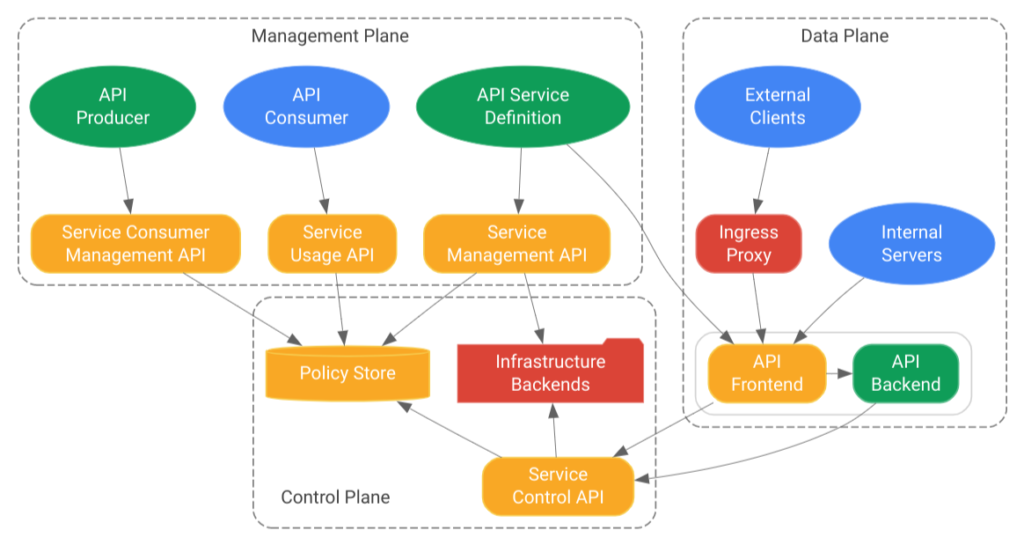
Benefits of GCP for SMBs
As an SMB, one of the key challenges is the need for scalability and flexibility in order to adapt to changing business demands. Google Cloud Platform (GCP) offers improved scalability and flexibility, allowing SMBs to easily scale their infrastructure up or down based on their needs. Whether it’s dealing with sudden spikes in traffic or expanding operations, GCP provides the necessary infrastructure to handle increased workloads without any hassle.
Another major advantage of GCP for SMBs is its cost-effectiveness. Traditional IT infrastructure can be expensive to set up and maintain, with costs including hardware, software licenses, and ongoing maintenance. GCP offers a pay-as-you-go model, where you only pay for the resources you use. This eliminates the need for large upfront investments and allows SMBs to optimize their spending by scaling resources based on actual requirements.
In addition, GCP provides a reliable and secure infrastructure for SMBs. Google operates a vast network of data centers, ensuring high availability and minimal downtime. With GCP, SMBs can have peace of mind knowing that their infrastructure is backed by one of the most reliable technology companies in the world. Moreover, Google’s advanced security features, including encryption at rest and in transit, help protect sensitive data from unauthorized access.
Choosing the Right GCP Services
GCP offers a wide range of services to cater to the specific needs of SMBs. Understanding which services to choose based on your requirements is crucial in building a robust IT infrastructure. Here are some of the key services provided by GCP:
Compute Engine
Compute Engine is GCP’s virtual machine (VM) service, allowing SMBs to run their applications on a reliable and scalable infrastructure. With Compute Engine, businesses have complete control over their VMs, including the choice of operating systems and the ability to scale resources up or down as needed. Whether you need to run a single application or multiple instances of an application, Compute Engine enables SMBs to build and manage their own virtual servers in the cloud.
App Engine
App Engine is a fully managed platform-as-a-service (PaaS) solution, ideal for SMBs looking to deploy and manage their applications without worrying about infrastructure management. With App Engine, businesses can focus on developing their applications while leaving the infrastructure provisioning, scaling, and monitoring to Google. This allows SMBs to save time and resources that can be better utilized in growing their business.
Kubernetes Engine
Kubernetes Engine is a managed container orchestration service offered by GCP. It provides a platform for deploying, scaling, and managing containerized applications using Kubernetes, an open-source container orchestration system. SMBs can leverage Kubernetes Engine to build resilient and scalable applications that can handle high traffic loads and adapt to changing demands.
Cloud Storage
Cloud Storage is GCP’s object storage service that offers highly durable and scalable storage for SMBs. With Cloud Storage, businesses can store and retrieve any amount of data from anywhere in the world. It provides a cost-effective solution for storing backups, archiving data, and hosting static websites. Cloud Storage also offers advanced features such as versioning, data encryption, and multi-regional replication for improved data security and redundancy.
Cloud SQL
Cloud SQL is a managed relational database service provided by GCP. It offers fully managed MySQL, PostgreSQL, and SQL Server databases, allowing SMBs to focus on their applications rather than database administration. Cloud SQL provides automatic backups, high availability, and scalability, making it an excellent choice for SMBs that require a reliable and easy-to-use database solution.
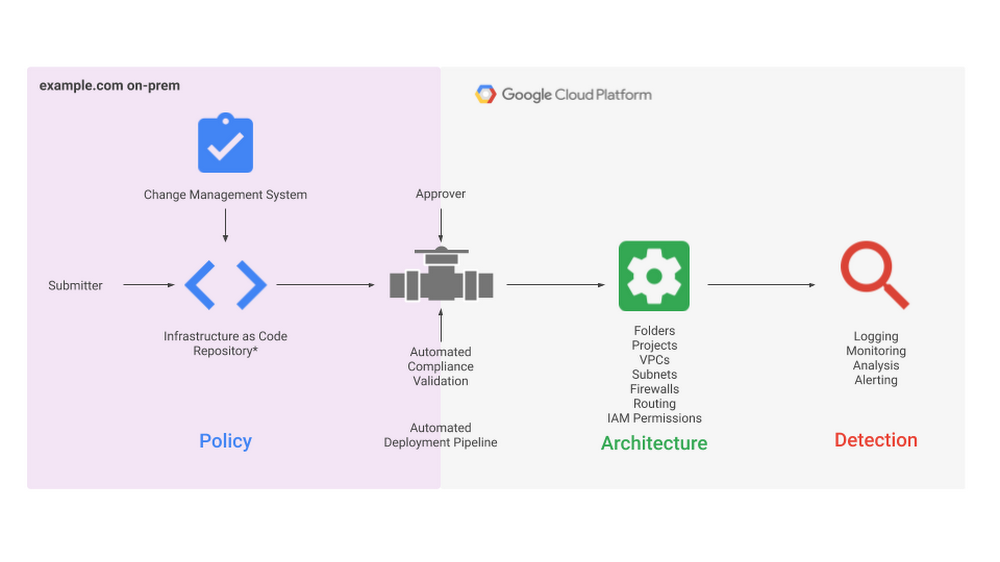
Designing a Resilient IT Infrastructure
Building a resilient IT infrastructure is essential for SMBs to ensure continuous availability and minimize the impact of potential disruptions. GCP offers several features and services that enable SMBs to design a resilient infrastructure. Here are some key considerations:
Implementing Redundancy
Redundancy is a critical aspect of a resilient IT infrastructure. By distributing workloads across multiple instances and data centers, SMBs can ensure that their applications remain available even in the event of failures. GCP offers features such as load balancing and global load balancing, allowing SMBs to distribute traffic across multiple instances to achieve higher availability and fault tolerance.
Load Balancing
Load balancing is a technique used to distribute incoming network traffic across multiple servers to optimize resource utilization, maximize throughput, and enhance reliability. GCP provides load balancing solutions that can distribute traffic to backend services, virtual machine instances, or containers. Load balancing helps SMBs achieve high availability for their applications by ensuring that traffic is evenly distributed and processed efficiently.
Disaster Recovery Planning
Disasters can strike at any time, causing unforeseen disruptions to business operations. It is crucial for SMBs to have a disaster recovery plan in place to minimize downtime and recover quickly in the event of a disaster. GCP offers disaster recovery solutions such as Cloud Storage for data backups and Cloud SQL for database replication. By leveraging these services, SMBs can implement a robust disaster recovery strategy and ensure business continuity.
Ensuring Data Security and Compliance
Data security is of paramount importance for SMBs, especially when dealing with sensitive customer information or industry-specific compliance requirements. GCP provides a range of security features and tools to help SMBs enforce data security and meet compliance standards. Here are some key considerations:
Encryption at Rest and in Transit
GCP supports encryption at rest, which ensures that data stored in Cloud Storage or databases is encrypted and protected from unauthorized access. Additionally, GCP provides encryption in transit, securing data as it moves between users and GCP services. By encrypting data both at rest and in transit, SMBs can prevent data breaches and safeguard sensitive information.
Identity and Access Management
Controlling access to resources is crucial for maintaining data security. GCP’s Identity and Access Management (IAM) allows SMBs to manage user access to their GCP resources and services. With IAM, businesses can define and enforce fine-grained access controls, ensuring that only authorized individuals have access to sensitive data and critical infrastructure components.
Meeting Industry Compliance Standards
Different industries have specific compliance requirements that businesses must meet to ensure data privacy and security. GCP helps SMBs meet industry compliance standards by providing compliance certifications and offering services that adhere to regulatory requirements. Some of the certifications and compliance programs that GCP complies with include ISO/IEC 27001, GDPR, HIPAA, and PCI DSS, among others.
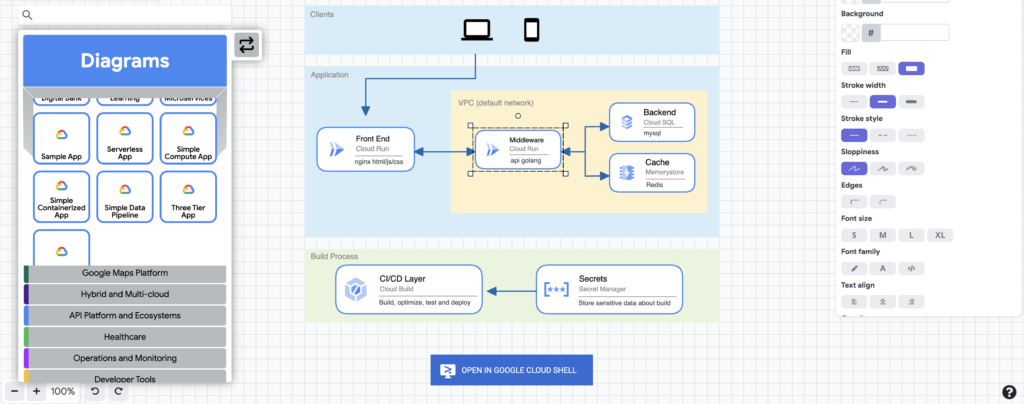
Managing and Monitoring the IT Infrastructure
Efficient management and monitoring of the IT infrastructure are essential for SMBs to identify and resolve issues quickly, optimize performance, and ensure smooth operations. GCP offers a set of tools and services that aid in managing and monitoring the IT infrastructure. Here are some key considerations:
Centralized Management
GCP provides a centralized management console, the Google Cloud Console, which allows SMBs to manage and monitor their resources from a single interface. From the console, businesses can provision and configure resources, monitor performance, and access logs and diagnostic information. Centralized management simplifies administration tasks and streamlines operations for SMBs.
Automated Alerts and Monitoring
GCP offers monitoring and alerting services such as Google Cloud Monitoring and Google Cloud Logging. These services allow SMBs to collect and analyze performance metrics, log data, and receive real-time notifications in case of anomalies or issues. By setting up automated alerts, SMBs can proactively identify and address potential problems, ensuring that their infrastructure operates smoothly.
Performance Optimization
Optimizing the performance of applications and infrastructure is crucial for SMBs to deliver a seamless user experience. GCP provides tools and services that help SMBs monitor and optimize performance. For example, Google Cloud Load Balancing automatically scales resources based on traffic demand, ensuring optimal performance and efficient resource utilization. Additionally, services like Google Cloud Profiler and Google Cloud Trace enable SMBs to identify performance bottlenecks and optimize application code.
Integrating GCP with Existing Systems
Many SMBs already have existing systems, applications, and databases that they rely on for their day-to-day operations. Integrating these systems with GCP is essential to leverage the benefits of the cloud while maintaining continuity. Here are some considerations for integrating GCP with existing systems:
Migrating On-Premises Infrastructure
For SMBs with existing on-premises infrastructure, migrating to GCP can offer numerous benefits. GCP provides various migration tools and services to help SMBs seamlessly transition their workloads to the cloud. By adopting GCP’s Lift and Shift approach, SMBs can replicate their on-premises infrastructure in the cloud, avoiding the need for significant architectural changes while benefiting from the scalability and cost-effectiveness of GCP.
Hybrid Cloud Solutions
SMBs may want to maintain some workloads on-premises while utilizing the cloud for others. GCP offers hybrid cloud solutions that enable SMBs to have a combination of on-premises and cloud-based infrastructure. For example, GCP’s Anthos allows SMBs to build, deploy, and manage applications on-premises, in the cloud, or across multiple clouds, providing a unified platform for hybrid and multi-cloud environments.
Integration with Third-Party Software
SMBs often rely on third-party software and services to support their operations. GCP provides a range of integrations with popular third-party software, making it easier for SMBs to seamlessly incorporate these tools into their infrastructure. Whether it’s integrating with customer relationship management (CRM) systems, collaboration tools, or data analytics platforms, GCP offers APIs, plugins, and connectors to facilitate seamless integration.
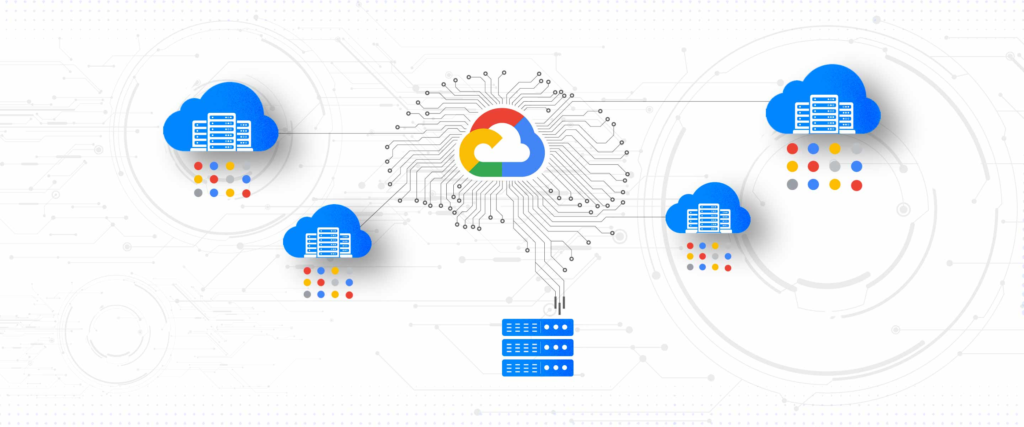
Building a Scalable and Efficient Architecture
Scalability and efficiency are key considerations when designing an IT architecture that can support SMBs’ growth and meet their evolving needs. GCP offers various services and architectural patterns that enable SMBs to build scalable and efficient solutions. Here are a few key considerations:
Microservices Architecture
Microservices architecture is a design pattern that divides applications into smaller, loosely coupled services. GCP provides services such as Compute Engine, Kubernetes Engine, and App Engine, which support the development and deployment of microservices-based applications. By adopting a microservices architecture, SMBs can scale specific services independently, allowing for greater flexibility and efficiency.
Serverless Computing
Serverless computing, also known as Function-as-a-Service (FaaS), allows SMBs to focus on application logic without worrying about managing infrastructure. GCP’s serverless offering, Cloud Functions, enables SMBs to run code in response to events without the need to provision or manage servers. With serverless computing, SMBs can achieve high scalability and efficient resource utilization, paying only for the actual execution time of their code.
Scaling Applications
One of the primary advantages of GCP is its ability to scale applications seamlessly. GCP’s autoscaling features, such as Google Cloud Load Balancing and Kubernetes Engine Autoscaling, automatically adjust resources based on traffic load. This ensures that SMBs’ applications can handle varying workloads without manual intervention, providing a scalable and efficient architecture.
Ensuring High Availability and Reliability
High availability and reliability are critical for SMBs to deliver uninterrupted services to their customers. GCP offers several features and services that help SMBs ensure high availability and reliability. Here are some key considerations:
Fault Tolerance
GCP’s infrastructure is designed to be fault-tolerant, meaning that services and applications are designed to continue functioning even in the event of component failures. GCP’s global load balancing and regional availability zones enable SMBs to build fault-tolerant architectures and ensure that their applications remain available even if individual components experience failures.
Backup and Restore Strategies
Data loss can have severe consequences for SMBs, making backup and restore strategies essential. GCP provides various backup and storage options, such as Cloud Storage and Cloud SQL backups, that enable SMBs to create regular backups of their data. By implementing automated backup strategies and testing restore procedures, SMBs can protect their critical data and quickly recover in case of data loss.
Monitoring for Availability
Monitoring the availability of applications and infrastructure is crucial for SMBs to identify and resolve issues promptly. GCP offers monitoring and logging services that allow SMBs to monitor the uptime and performance of their applications. These services provide real-time insights into the health of the infrastructure, enabling SMBs to proactively address any availability issues and ensure maximum uptime.
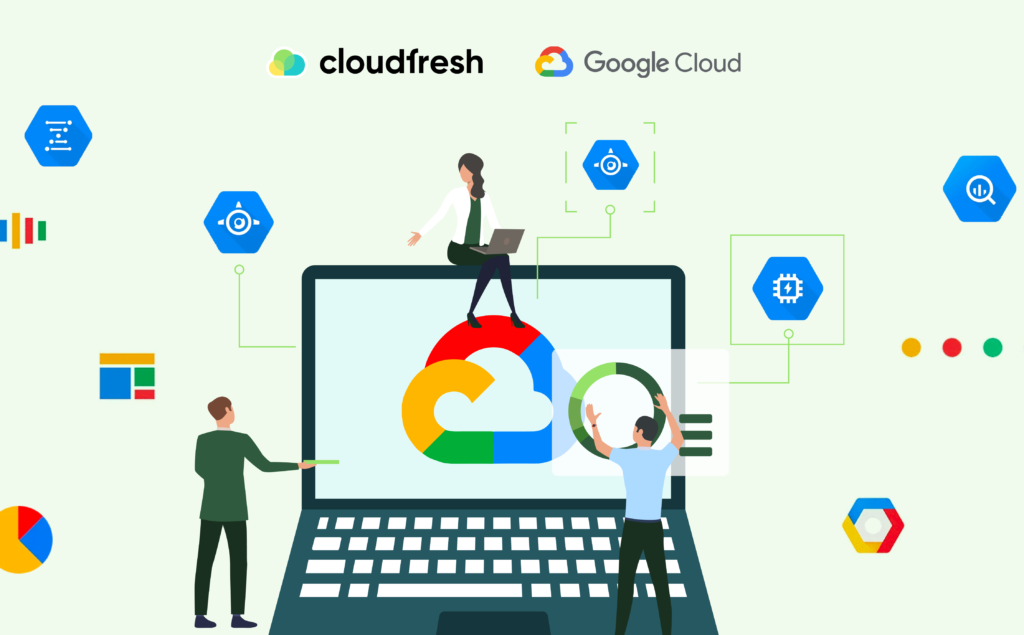
Optimizing Costs with GCP
Cost optimization is a key concern for SMBs, and GCP provides various features and services to help SMBs optimize their costs. Here are some considerations for cost optimization:
Rightsizing Resources
GCP offers tools and services that enable SMBs to rightsize their resources, ensuring that they only pay for what they actually need. Services like Google Cloud Monitoring provide insights into resource utilization, assisting SMBs in identifying underutilized resources and downsizing them. Rightsizing resources helps reduce costs by eliminating unnecessary expenditures on idle or overprovisioned resources.
Pricing Models
GCP offers different pricing models, including pay-as-you-go and committed use discounts, allowing SMBs to choose the most cost-effective option based on their requirements. The flexibility to pay for resources on an hourly or monthly basis, with the ability to modify or terminate services as needed, helps SMBs optimize their costs and align their spending with their business needs.
Cost Management Tools
GCP provides a suite of cost management tools to help SMBs track and manage their expenses. Google Cloud Billing enables SMBs to view and analyze their usage and costs, providing granular insights into resource costs and usage patterns. Additionally, Cost Management Recommendations provide proactive suggestions for optimizing costs, allowing SMBs to make informed decisions and reduce unnecessary spending.
Training and Support
For SMBs transitioning to GCP, access to training resources and support is crucial to ensure a smooth adoption and effective utilization of the platform. GCP offers various resources to help SMBs learn and get started. Here are some key considerations:
Access to Training Resources
GCP provides comprehensive training resources, including online documentation, tutorials, and hands-on labs, to help SMBs learn about the platform and its services. The GCP Training and Certification program offers certifications that validate technical expertise and proficiency in using GCP, allowing SMBs to demonstrate their skills to customers and partners.
24/7 Support Options
GCP offers round-the-clock support to assist SMBs with any technical or operational issues they may encounter. The support options include telephone support, chat support, and an online help center. Having access to 24/7 support ensures that SMBs can get timely assistance whenever they need it, minimizing downtime and optimizing productivity.
Community Forums
GCP has a vibrant community of developers, architects, and experts who actively participate in community forums, sharing knowledge and insights. SMBs can engage with the community to seek advice, ask questions, and learn from others’ experiences. The community forums provide an additional resource for SMBs to get support and stay updated on the latest trends and best practices in using GCP.
In conclusion, GCP offers a comprehensive set of services and features that are well-suited for SMBs’ IT infrastructure needs. From improved scalability and flexibility to cost-effective solutions and reliable infrastructure, GCP provides numerous benefits for SMBs. By choosing the right GCP services, designing a resilient infrastructure, ensuring data security and compliance, managing and monitoring the infrastructure effectively, integrating with existing systems, building a scalable architecture, ensuring high availability and reliability, optimizing costs, and accessing training and support resources, SMBs can build a strong and efficient IT infrastructure with GCP.
